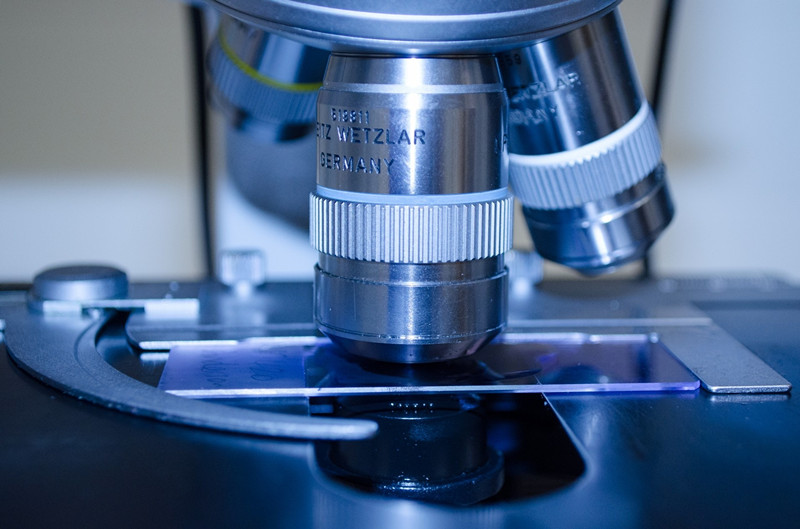
Biotech breakthroughs are rapidly changing the landscape of healthcare, promising life-altering advancements for patients. These innovations, driven by cutting-edge study, are ushering in an era of personalized medicine, tackling complex diseases with targeted therapies. What exactly are these revolutionary biotech breakthroughs, and how are they impacting people’s lives? This article will explore the most promising advancements, the challenges involved, and the potential applications of these technologies. We’ll examine the transformative power of gene editing, delve into the advancements in personalized medicine, and discuss the profound impact of biotech on clinical trials and drug development. We will also touch upon the essential ethical considerations and the future of biotechnology in medicine.
The Rise of Personalized Medicine
Tailoring Treatments to Individual Needs
Personalized medicine is revolutionizing healthcare, moving away from one-size-fits-all approaches. This innovative approach considers individual genetic makeup and other factors to develop targeted treatments. By understanding an individual’s unique genetic profile, studyers and doctors can predict an individual’s susceptibility to certain diseases or their response to specific drugs. This leads to more effective treatments, fewer side effects, and ultimately, improved health outcomes. Imagine a future where doctors can prescribe treatments precisely calibrated to your genetic code. This is the promise of personalized medicine.
Gene Therapy: Unveiling the Power of Genetic Modification
Gene therapy is another significant breakthrough in biotechnology that holds immense promise for treating a wide scope of genetic disorders. This cutting-edge technology involves altering or supplementing genes to treat or prevent diseases. Imagine correcting faulty genes that cause diseases. Gene therapy has shown considerable promise in treating diseases such as cystic fibrosis, hemophilia, and muscular dystrophy. Early achievementes in clinical trials have ignited great hope, but much study is needed to fully realize its potential. There are also significant ethical considerations to address regarding its long-term impact.
Gene Editing Technologies: CRISPR and Beyond
Related Post : Data Privacy Concerns: Protecting Consumer Information in Business Industries
Revolutionizing Genetic Engineering
Gene editing technologies like CRISPR are transforming the field of biology. CRISPR allows scientists to precisely target and modify specific genes, offering a revolutionary approach to treating genetic disorders. This powerful tool offers studyers with unprecedented precision in manipulating DNA, paving the way for groundbreaking discoveries in disease treatment and diagnostics. This technology has the potential to eliminate genetic predispositions to diseases, reducing the risk of inheritable conditions in future generations.
Biotech Advancements in Drug Development
Accelerating the Discovery of Life-Saving Medications
Biotech breakthroughs are significantly accelerating the drug discovery process. studyers can develop novel drug candidates and target therapies with greater efficiency, potentially leading to faster and more effective treatment options for diseases. For example, monoclonal antibodies, which are produced by cells of the immune system, can be harnessed for disease treatment. These sophisticated immune proteins can target disease cells precisely, reducing side effects and promoting specific effects. This approach promises more effective treatments and improved patient outcomes.
The Future of Biotechnology: Ethical Considerations
Balancing Innovation with Responsibility
While biotech breakthroughs hold immense promise, ethical considerations are crucial. The ability to manipulate genes raises profound ethical concerns, particularly regarding germline editing and the potential societal implications. Careful ethical reviews and discussions are essential to ensure that these powerful tools are used responsibly and ethically. Transparency and inclusivity in the development and application of these technologies are vital to ensure equitable access and widespread societal benefits. Debate around the potential consequences is essential.
Clinical Trials: Testing Biotech Innovations
Ensuring Safety and Efficacy
Rigorous clinical trials are essential for assessing the safety and efficacy of new biotech therapies. These trials carefully evaluate the effects of novel treatments on human subjects, ensuring that they are both safe and effective before they are made available to the public. Large-scale studies involving diverse patient populations are essential to ensure the generalizability and wider utility of these treatments.
In conclusion, biotech breakthroughs are revolutionizing healthcare and promising a brighter future for millions. From personalized medicine to gene therapy, these advancements hold immense potential. However, responsible development and ethical considerations are paramount. By embracing a balanced approach that combines innovation with caution, we can harness the transformative power of biotechnology for the benefit of all. To stay updated on the latest breakthroughs, visit our website for more articles and insights. Let’s continue the conversation! #BiotechBreakthroughs #HealthcareInnovation #GeneTherapy